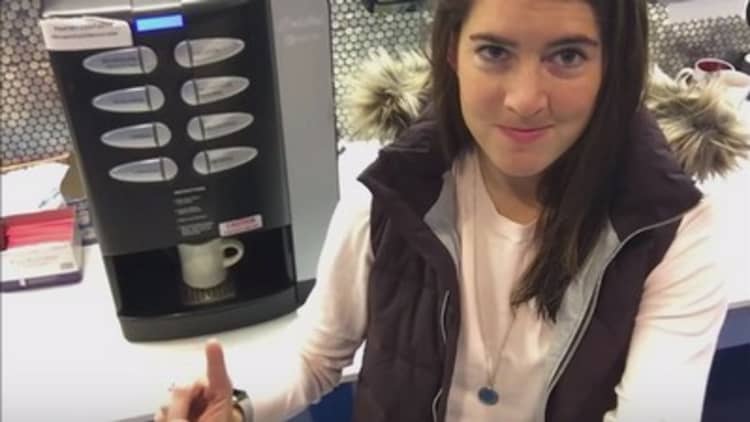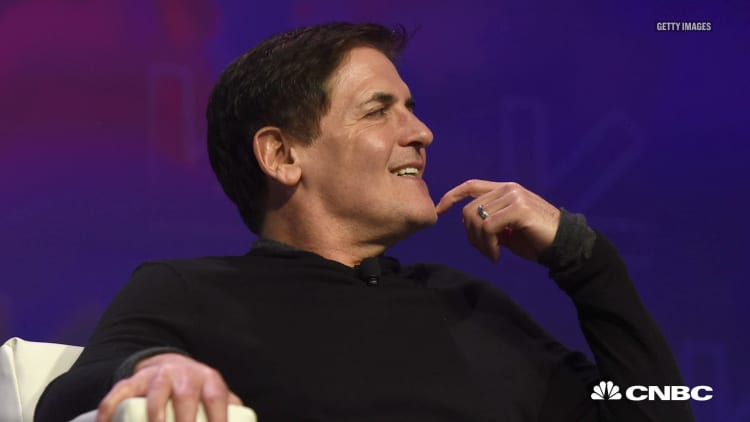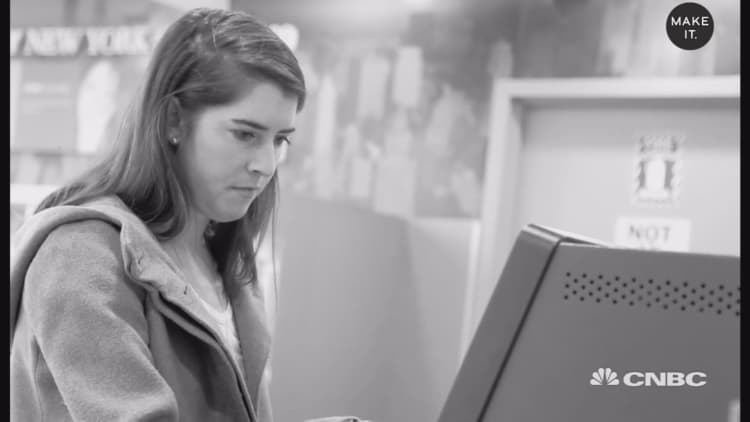Between a four-day trip to London, some concerts and a close friend's bachelorette weekend, April ended up being a less-than-frugal month for me. I knew I wanted to cut back my spending in May but, with two weddings and a trip to California on the calendar (I just about packed all of my travel for the entire year into two months), I had to plan around several larger expenses.
So I decided to go on a "cash diet."
The rules were simple: I'd give myself a set allowance each week. I would pay for all non-essential expenses, such as events, dinners out or grabbing drinks, with cash. My credit and debit cards were off-limits, with the exception of the two wedding gifts I needed to purchase.
I figured this plan would force me to stick to a strict budget: When the cash ran out, it ran out, and I couldn't get more until the next week.
I was excited for the month to start and I envisioned all the money I'd save. I didn't think the plan would be too difficult to follow. After all, I've already automated most of my expenses, including savings and investments, which basically forces me to live on what's left.
But, boy, was I wrong. I gave up on my experiment after only a week. Here's why.

Cash complicated things
Halfway through the day on May 1, I realized I had already broken my cash-only rule. Despite loading up my wallet with $80 worth of crisp twenties, when I stopped by the grocery store on the way to work, I pulled out my credit card out of habit.
"It's okay," I told myself later, when I realized my mistake. "Just subtract that amount from the total and move on." But I didn't have exact change, so I kept the full $80 in my wallet and figured I'd deal with it later. I never did.
The next day, I ran into another snafu: The copay at my doctor's office. I had always used a card at this particular location and cash felt like it would be clunky to process, so I handed over my card in an attempt to streamline things. Again, I told myself I'd subtract it from the total later.
Later on in the week, I left my lunch at home and went out to pick up a replacement. I brought only my work I.D. card, cell phone and a $20 bill. "This will force me to pay with cash!" I thought, feeling like I had finally cracked the system.
But after ordering at a grab-and-go salad shop and handing over my bill, the cashier gave me a half-confused, half-apologetic look. "Oh," he said. "We don't take cash."
"Not at all?" I asked.
"Sorry," he shrugged.

I trudged down the street to another place and, before placing my order, was careful to ask, "Do you accept cash here?" This cashier gave me an equally quizzical look. "Yes," she answered slowly, as though what she really wanted to say was, "Obviously."
I tried to stick to my cash diet for a few more days, but these tiny inconveniences kept getting the best of me, and I gave up.
My biggest hindrance to going cash-only was the fact that so many things aren't cash-based anymore. Throughout my single week on the diet, I separately contemplated buying tickets to an event and ordering household supplies via Amazon, only to backtrack after realizing those purchases would break my rule.
To some extent, that was the point of the experiment. I wasn't able to impulsively spend $40 on a concert or $10 downloading a new Kindle book. If I had to go out of my way to buy something, I thought twice about whether it was worth the chunk of my weekly budget it would cost.
However, I couldn't see myself sticking to that system long-term. Going back and forth between cash and credit was too hard to keep track of. I prefer to charge everything I can to my credit card and pay it off each month. That way I have an electronic record of every single purchase I've made. After all, if you're not keeping a close eye on cash, it can begin to feel like Monopoly money.

The upsides
For many, going cash-only creates a helpful physical barrier to overspending. Take my colleague Kathleen Elkins, who went on a two-month-long cash diet last winter. After living on $60 a week for eight weeks, she was able to save over $1,000.
"It's easy to mindlessly swipe a credit card and forget you even bought something," she writes. "Try handing over physical bills and watching your money disappear right in front of your eyes. Chances are, you'll start to think longer and harder before making purchases."
"On the cash diet, I've become a much more conscious spender, buying more of what I need and less of what I want in the moment," she adds.
No matter what your method for saving is, it's helpful to have a specific goal in mind. It shifts your focus from "I wish I could buy X now!" to "I'm excited to buy Y later!"
For Elkins, she knew she would celebrate the end of her cash diet at Mardi Gras in New Orleans, and having a goal helped her save. "Those $5 lattes and $2 Vitamin Waters are much less tempting when I think about all the beignets that money could buy over the course of my trip," she says.

It's the same lesson I learned when I challenged myself to rack up "zero spend" days in January and then lost my motivation halfway through. I realized that I needed a goal. "The ambiguity of having more spend-free days on my calendar wasn't enough of a draw to keep me from the small impulsive purchases that drain my bank account," I wrote then.
What failing at a second savings challenge taught me isn't that I'm bad with money. In fact, I generally make smart spending choices and I'm able to save a large chunk of my pay each month.
Rather, I've learned that you have to find the system that works for you. Just because going cash-only works for your colleague doesn't mean it's the magic answer to improving your own finances.
I've found that it's worth it to invest time in trying different systems and figuring out which strategy will work long-term. For me, that means using credit cards responsibly and making everything automatic. I'm not ready to ditch the plastic just yet.
Don't miss: I live in NYC and still save money—here's the trick that helps me do it
Like this story? Like CNBC Make It on Facebook!



